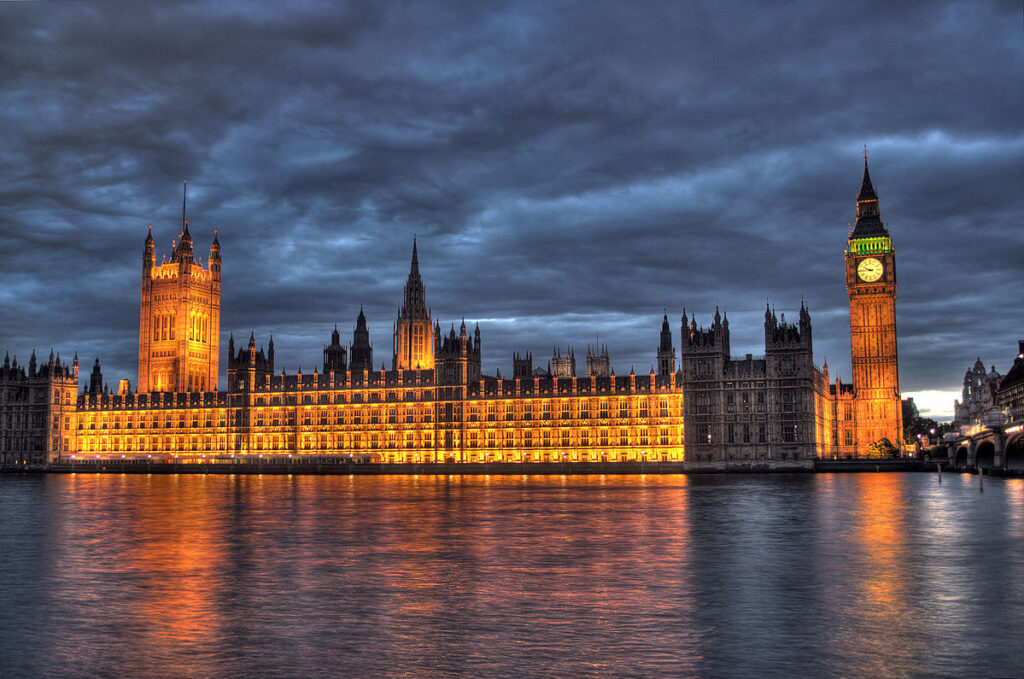Blog Post, MAiD / Euthanasia
The die is not yet cast: The UK’s assisted suicide law can still be defeated
When news reached the crowd gathered outside of Westminster that Parliament had voted in favour of assisted suicide, people in wheelchairs openly wept. “The atmosphere is one of profound sadness and terror,” said Caroline Farrow, who was standing with them. “A dark cloud has descended over the UK.” Every single one of the more than 350 disability rights groups in the UK had opposed the Terminally Ill Adults (End of Life) Bill, and 330 MPs had ignored them. Disability activists are used to being ignored, but this time was different.
November 29, 2024, may prove to be the darkest day in UK politics since the Abortion Act, which received Royal Assent on October 27, 1967. There are many parallels between the two bills. Both sanction the taking of human life by medical professionals. Both are championed by politicians and activists who insist that the killing will be rare. There have been around 10 million abortions in the UK since 1967; the euthanasia regimes of the Netherlands, Belgium, and Canada illustrate that the slippery slope is not a fallacy but a demonstrable inevitability. It is difficult not to conclude that most of those who champion assisted suicide do not believe their own rhetoric.
It is no wonder that disability rights activists fear this new legislation. The UK’s abortion regime is explicitly eugenic—abortion in general is restricted to 24 weeks, but babies diagnosed with Down syndrome, or a cleft palate, or a clubfoot, can be aborted up until birth. Heidi Crowter, a young woman with Down syndrome, challenged this eugenic exception in court; a judge ruled in November 2022 that the Abortion Act “did not interfere with the rights of the living disabled.” Except, of course, for affirming that those with disabilities are inherently less valuable, and that thus open season on the disabled in the womb should be longer to allow for that. It bears noting that when the Abortion Act was debated, Tory MP Jill Knight was loudly mocked for accurately describing the kind of society the law would create.
She was right. Her sneering detractors were wrong. And here we are, again.
The assisted suicide debate was also littered with propaganda, obfuscation, and outright lies. The bill’s sponsor, backbench MP Kim Leadbeater, was responsible for most of them. Indeed, even the constantly cited “public support” for the bill was a mirage—a poll found that when people were actually told what the bill would mean, support plunged to 11%. Polls, as we know, are taken not to gauge public opinion but to shape it—and Dying with Dignity (once known as the Voluntary Euthanasia Society_ has spent enormous amounts of cash attempting to manufacture consent with deceptive advertising, to boot. As Yuan Yi Zhu noted in the Spectator:
Ahead of the vote, Dignity in Dying, flush with money, advertised on a massive scale. They plastered Facebook with ads. They covered the walls of Westminster tube station with posters showing people jumping in joy to celebrate being able to kill themselves. (There is at least one suicide attempt every week on the underground network.) Dignity in Dying knew this vote was their best shot at legalising assisted dying in a century, and they held nothing back.
Despite that, four former prime ministers—Boris Johnson, Liz Truss, Gordon Brown, and Theresa May all opposed the bill. To their shame, David Cameron, Rishi Sunak, and Keir Starmer supported it. Even the Church of England has stepped up, with over 1,000 members of the Anglican clergy – including 15 bishops – signing an open letter. Cardinal Vincent Nichols and other prominent Catholic clergy have also been vociferous in their condemnation of the bill; Chief Rabbi Sir Ephraim Mirvis published his opposition to the bill on November 26. Additionally, 3,400 healthcare professionals, including 23 hospice medical directors and 53 eminent medical professionals, signed a letter stating that Leadbeater’s bill “would threaten society’s ability to safeguard vulnerable patients from abuse.”
Thankfully, the die is not yet cast. According to the Independent, 36 MPs who voted for the bill could be persuaded to change their minds at third reading, saying that they only voted for the bill to continue the debate—and only 28 MPs are needed to defeat the bill. As Dan Hitchens noted: “There will no doubt be more—a few MPs switched to ‘no’ in recent weeks, plus there are 18 who didn’t vote on Friday. All to play for!” UK medical doctor and pro-life activist Calum Miller concurred: “This is really important. The euthanasia fight is far from over. There are enough undecided MPs to protect the old and sick, protect the soul of the medical profession, and protect life. Let’s keep fighting!” A strategy to do just that is already circulating amongst parliamentarians.
The words of Dylan Thomas seem appropriate here:
Do not go gentle into that good night,
Old age should burn and rave at close of day;
Rage, rage against the dying of the light.









Interesting that JK Rowling is speaking out against the bill and retweeting Dr. Callum Miller. Does she go full pro-life?